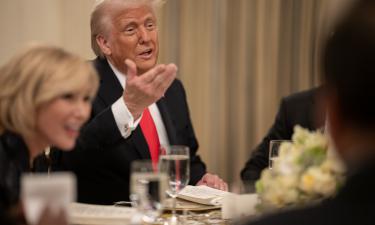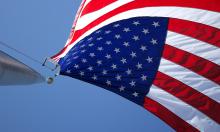Beef from U.S banned over mad cow fears, South Korean committee says
Beef from the United States banned over mad cow fears could be considered safe to eat if stronger inspection and quarantine measures are taken, a government and private sector advisory committee said Wednesday. The Ministry of Agriculture and Forestry will take the committee's findings into account in deciding whether to restart talks with the United States over resuming beef imports, Park Hyun-chool, director general of the ministry's livestock bureau, told reporters.
South Korea prohibited the import of U.S. beef in December 2003 after a Holstein cow in the U.S. state of Washington tested positive for bovine spongiform encephalopathy, commonly known as mad cow disease. South Korea has so far rebuffed repeated U.S. requests to end the ban, citing health and safety concerns.
The Livestock Quarantine Committee, composed of ministry officials, consumers, producers and livestock experts, found that some worries remain over U.S. cattle quarantine measures, said Park, who attended the committee's meeting.
It also said that making quarantine and inspection standards stronger could remove fears over the safety of U.S. beef, according to Park. "There are no decisive grounds to say U.S. beef is not safe," Park said, adding that the ministry will decide by the end of the year whether to resume negotiations with the United States.
Japan, which also prohibited U.S. beef imports in 2003, on Monday eased its ban on U.S. and Canadian beef after two years of negotiations and following a lengthy approval process. Separately, U.S. Secretary of Agriculture Mike Johanns on Wednesday asked his South Korean counterpart Park Hong-soo to quickly resume imports of U.S. beef, the South Korean ministry said in a statement. Park told Johanns during talks on the sidelines of a World Trade Organization meeting in Hong Kong that experts were reviewing the safety of U.S. beef and that South Korea will review the case on the basis of international standards and scientific grounds, the statement said.
In partially lifting its ban, Japan said it would only import meat from cows younger than 21 months because no cases of mad cow disease have been found in cattle that age. It also demanded that U.S. inspectors follow strict guidelines, such as removing dangerous material such as brains and spinal cords.
South Korea also bans Canadian beef because of mad cow disease, but Wednesday's committee findings were concerned only with U.S. beef. The United States was the largest exporter of beef to South Korea before the ban and the country was the second-largest export market for the U.S. after Japan. The top two exporters to South Korea now are Australia and New Zealand.
South Korea imported about 200,000 tons of U.S. beef worth approximately US$1 billion (Ђ834 million) in 2003 until just before the ban was imposed, according to the South Korean agriculture ministry, reports the AP. I.L.
Subscribe to Pravda.Ru Telegram channel, Facebook, RSS!




